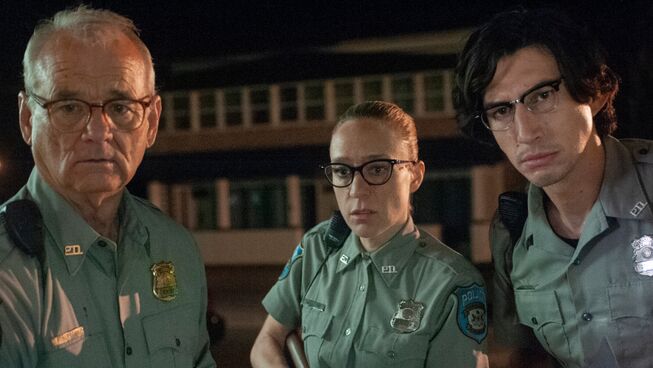
3 out of 5 stars
Vincent (Bill Murray) lives a less than desirable life. First time director, Theodore Melfi, does a masterful job of slowly painting a despairing, but hopeful portrait of the central character. He seems to be a man at the end of himself, but is holding onto a glimmer of hope for tomorrow. Vincent is a lonely drunk who has no money, a gambling problem, and a pregnant, prostitute girlfriend named Daka (Naomi Watts). To add to his misery, Maggie (Melissa McCarthy), a recent divorcee and her son, Oliver (Jaeden Lieberher) move next door. Through a desperate twist of events, Vincent sees the opportunity to earn some money from Maggie. She needs a daytime carer for Oliver and, surprisingly, she takes him up on his offer to watch over her son. The layers of the story begin to become evident as Oliver transitions to a new school, Maggie works through life as a divorcee and Vincent tries to figure out how to get out of his abysmal financial situation.
As the drama unfolds, a friendship between Oliver and Vincent comes to life. The friendship builds as their pasts are revealed, which allow them to understand more about each other. They begin to help each other through the challenges of their different seasons of life. Vincent's past, also, reveals the reason for his financial plight and his grumpy demeanour. Through the story, he begins to see that the burdensome people that have come into his life are actually the means to his salvation. St. Vincent turns from a coming of age film to a story of human interdependence and community.
The raw story line of St. Vincent comes from the exposure to the messiness of life. Theodore Melfi has written and directed a multi-layered story that capitalises on beautifully, imperfect characters. Murray fits into the character of Vincent as comfortably as the socks and sandals he wears throughout the film. His portrayal of the lovable, grump has only been rivalled in cinema by the late Walter Matthau. Both of these actors developed a rare quality that should repel the characters around them, but end up causing an opposite effect, which is seen even in the love of Vincent's cat. Even though Vincent does not have much to give, he does try to give them his best of what he has to offer, which makes him endearing which cause the characters and the cat to keep coming back to him.
What adds to the appeal of this film is the superb supporting cast of McCarthy, Watts and Chris O'Dowd (Calvary). This ensemble complements Murray and brings the story along well. The key to the ensemble is the new talent, Jaeden Lieberher. Even as a child actor, he manages to have a poise and maturity that keeps pace with the delivery of O'Dowd, Murray and McCarthy. Even during the film's darkest moments, the well blended characters give the story line a lightness and believability that delivers the depth needed to carry the audience through to the end.
Like the main character's personality, this film has a bite that cannot be ignored. Life's realities, the themes and the language make this a film suitable for adults.* The film seems to be written for those who can appreciate the depth of pain, suffering and the frustrations of life. St. Vincent is for those who have lived through a fair bit of life themselves. The audience connection with Vincent is not due to the appeal of his lifestyle, but because of the reality that the human condition is flawed and the flaws give us the spice in our lives and draw us together. The excessive drinking, promiscuous acts and gambling are never justified in the film, but help add to the sympathy for Vincent and give a hope that he can come out from underneath these struggles. This is a well crafted and acted film and the credit goes to the writing and directing of Melfi, who has made a good film that manages to bring beauty out of the drudgery of life.
*This is a film for adults due to language and one sex scene.
Reel Dialogue: What are the bigger questions to consider from this film?
1. How does the Bible define saint? (Acts 9:13, Philippians 4:21)
2. Are we supposed to care for our family? (1 Timothy 5:8, Genesis 2:4)
3. In a multi-cultural world, how can we truly know God? (John 3:16, John 14:6)







